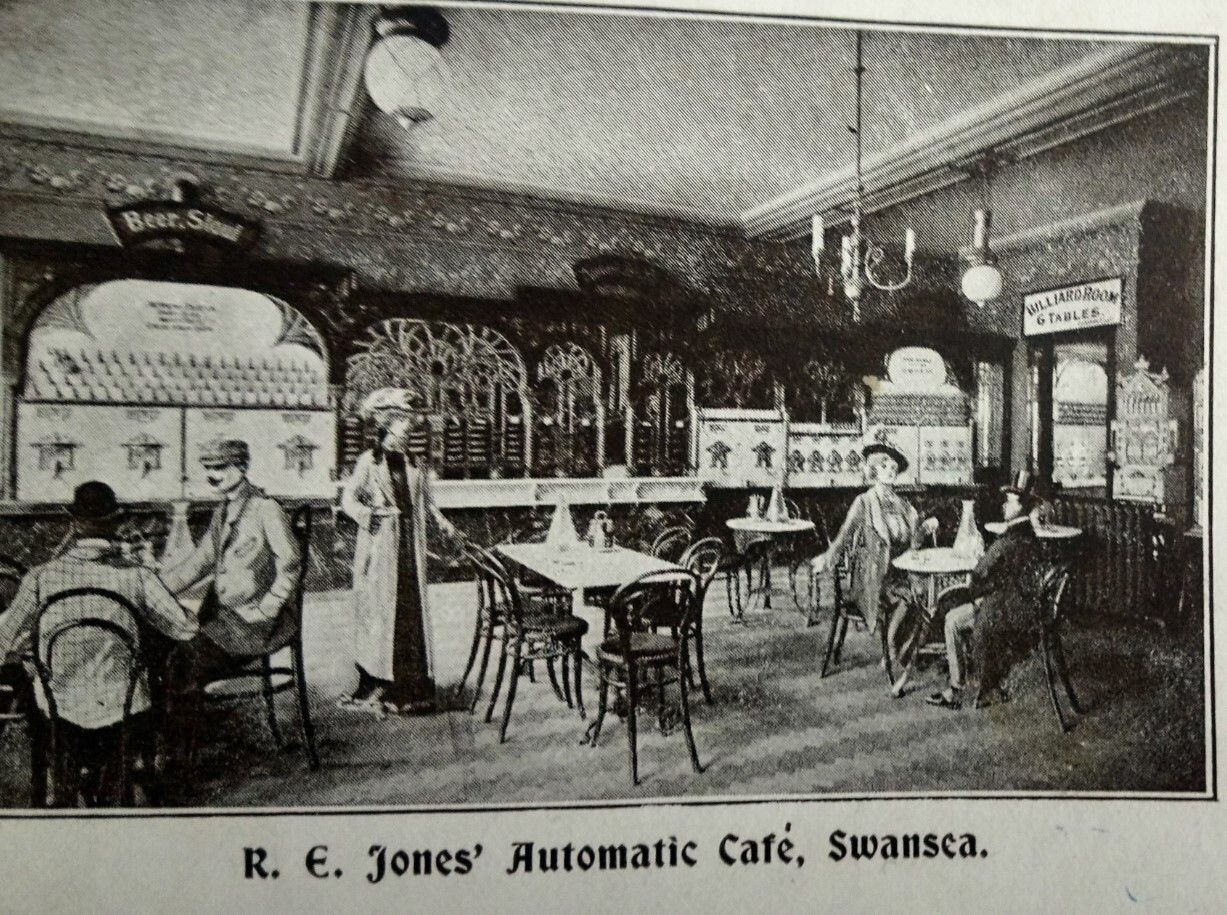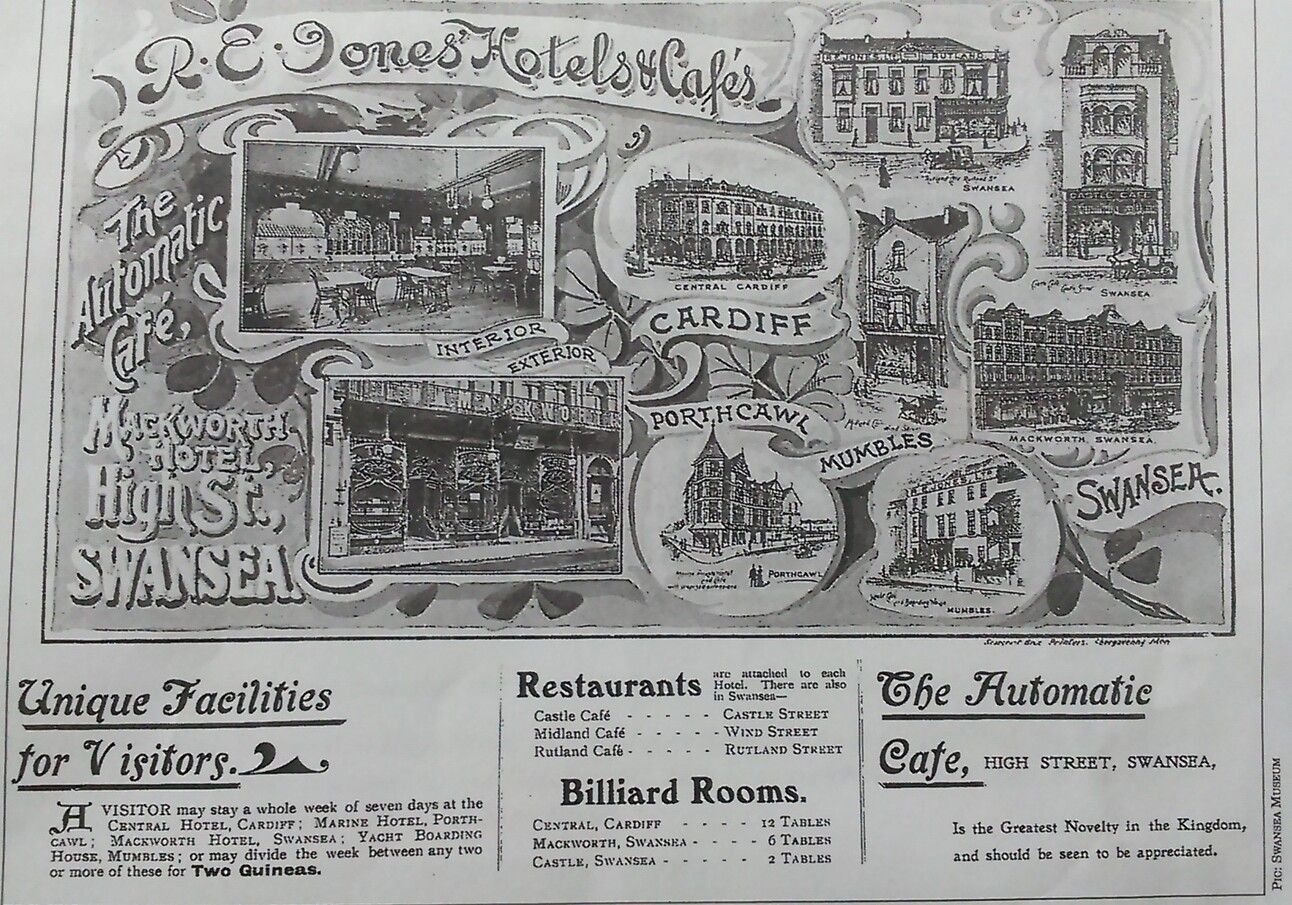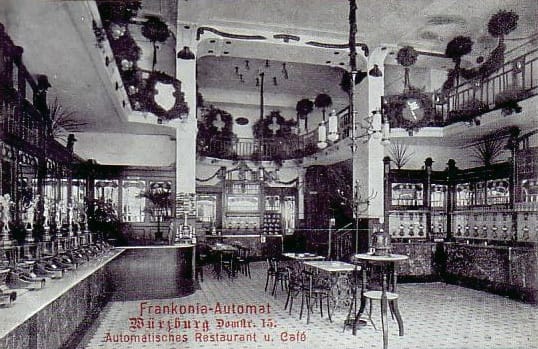
Good morning, Swansea!
This week, discover how our city quietly made British dining history back in 1902 - with a revolutionary café on High Street that was the first of its kind in the UK. And wait until you hear what Swansea's police chief had to say about it…
Catch you on Sunday! Andrew.
The Penny-in-A-Slot Cafe
When thousands of curious Swansea residents crowded the Mackworth Hotel on a Saturday in June 1902, they weren't just queuing for their dinner - they were witnessing a revolution in British dining.
The South Wales Evening Post called it "a very unique experiment in catering." Behind the hotel's doors stood Britain's first automatic café, where meals appeared as if by magic through gleaming glass windows at the drop of a penny - or sixpence if you were feeling flush.
A penny would get you sandwiches, cakes, or even beer. Two pence bought a pot of fresh tea, while three to six pence secured anything from cold meat to a hot dinner with vegetables.
As the Post reported: "You walk into a spacious beautifully-fitted restaurant. You see all round you in sumptuous cases covered with bevelled plate-glass." All you had to do was "put a coin in a slot, pull a lever, and heigh presto!"
Even the local police found something to praise. Captain Colquhoun, Swansea's head constable, noted that the complexity of the mechanism served as an unexpected deterrent to drunken dining - "If it is hard for a man in a state of inebriation to find his keyhole, how much more so will it be to place a penny in a slot!"
From Germany to Swansea
The £4,000 venture emerged after Walter Elwy-Jones, son of Welsh entrepreneur Richard Edwin Jones, visited Berlin and brought the concept back to Swansea. While Britain's first automatic café, the concept had originated in Berlin with the Automat GmbH in 1889.
R.E. Jones had already established himself as a pioneering force in Welsh hospitality. Since the 1870s, he and his wife Elizabeth Williams, along with their four sons, had built a significant catering empire across South Wales. Their company, R.E. Jones Ltd, managed everything from railway hotel catering to wine merchants and bakeries.
The automatic café, implemented by Walter for his father's business in 1902, was just one innovation in what would become a public company listed on the London Stock Exchange. The family's hospitality empire would eventually extend from its Welsh roots to prestigious London establishments.
The success of the Mackworth Hotel venture led Jones to expand, opening additional automats in Cardiff and at The Yacht Cafe in Mumbles. The Mumbles location operated until 1920-21, when it became the Beach House café.
Loved by New Yorkers

The idea of automatic cafes would reach its peak in America, where Horn & Hardart opened their first automat in Philadelphia in 1902, the same year as Swansea's pioneer. By the 1950s, their chrome-and-glass automats had become an icon of New York dining, serving over 800,000 customers daily. They remained popular until the rise of fast food in the 1970s.
While America's automats would survive into the 1970s, Britain's experiment with automatic dining was shorter-lived. Yet for a brief moment in 1902, Swansea led this dining revolution, one penny slot at a time.
Did you enjoy this article? Please forward it to a friend!


